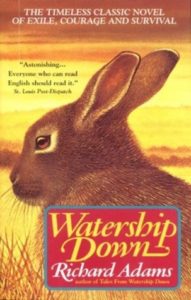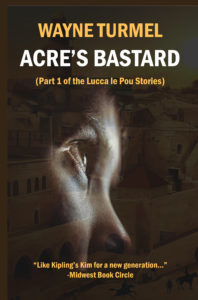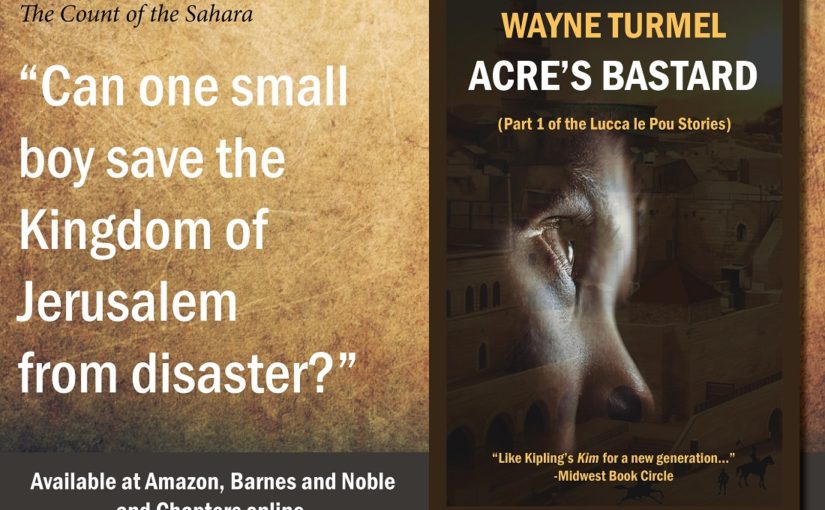
Richard Adams, author of Watership Down, died this week. Although talking bunnies in the English countryside are a long way from the Crusades, he and I have (had?) at least one philosophy in common–“there are no such things as children’s books.”
I know it’s tacky and self-serving turning the loss of a writer into a discussion about my new book, Acre’s Bastard, but there’s a point to be made, so indulge me.
Watership Down, because it involves talking rabbits, is sometimes (very mistakenly) thought of as a children’s book. Adams’ point was that a book is a book. If you can read, then the book is for you. Now, to make this about me again, that’s one reason I intentionally avoided making the tale of Lucca and his adventures, “YA.” Yes, the hero is a young boy. Yes it’s an adventure story that anyone over the age of 14 or 15 can enjoy. That doesn’t mean it’s meant for a younger audience or that adults can’t enjoy it guilt-free.
In fact, one reason my former publishers at The Book Folks (blessings be upon them) turned this book down, is the fear that adults won’t read about a young boy, and younger readers will be appalled or offended by the violence and terror Lucca goes through. I don’t believe that. So far, my readers and reviewers haven’t either.
The fact is, a good story is a good story. Jim Hawkins, Luke Skywalker and Kim were young boys thrust into violent situations and thrilling adventures. Treasure Island and the lot were written for a general audience, before marketing people segregated the audience and school libraries were the final arbiters of what was appropriate reading material.
The recent violence in Aleppo only goes to show that children are often caught in wartime, and combatants don’t care what’s “appropriate for children.” That’s what Acre’s Bastard is about. Yes, it might not be for all young readers (although I’d have read it at 15.) That’s why I rejected the original title of “Acre’s Brat,” lest it entice those not ready to tackle the subject matter. You have to play fair with the audience, after all.
Richard Adam’s allegorical rabbits weren’t intended solely for a young audience, although it didn’t talk down to, or exclude them either. I hope the same is true of my book. I hope teen readers will thrill to Lucca’s adventures and identify with his spirit, and older audiences won’t be put off by the idea that it’s about a child so must be for younger audiences.

Acre’s Bastard is available for pre-order now at Amazon, Barnes and Noble and Chapters online. The Ebook will be available January 17, and the paperback February 8.

Your post is a breath of fresh air for me! I’ve been arguing against the balkanization of fiction for a long time, with special focus on books that have children as protagonists. How about Treasure Island? Or even Great Expectations? Children who are sophisticated readers can enjoy the challenge of reading these books, but so can adults. The authors of classic “children’s” fiction did not spare their readers either vocabulary or traumatic event. Children today are too often coddled with happy-shiny stories when what they really need are stories about danger and difficulties overcome, or about challenging ethical dilemmas that build understanding of life’s complexity.
As a technical matter, writing from a child’s point of view can offer openings for suspense (a classic unreliable narrator scenario) and increase the reader’s attachment to the protagonist (we feel protective of the character and sense his or her extra vulnerability).
So write on, even if timid publishers won’t take a chance!